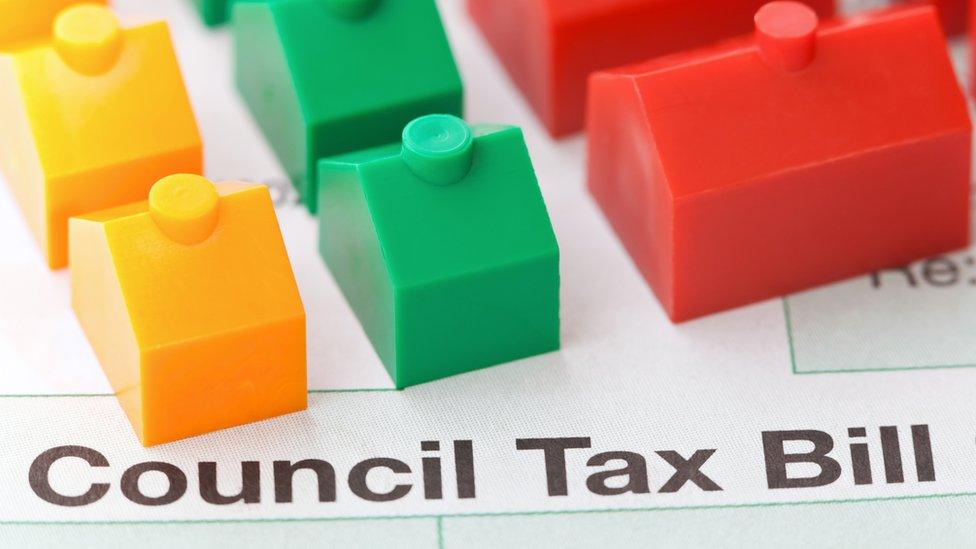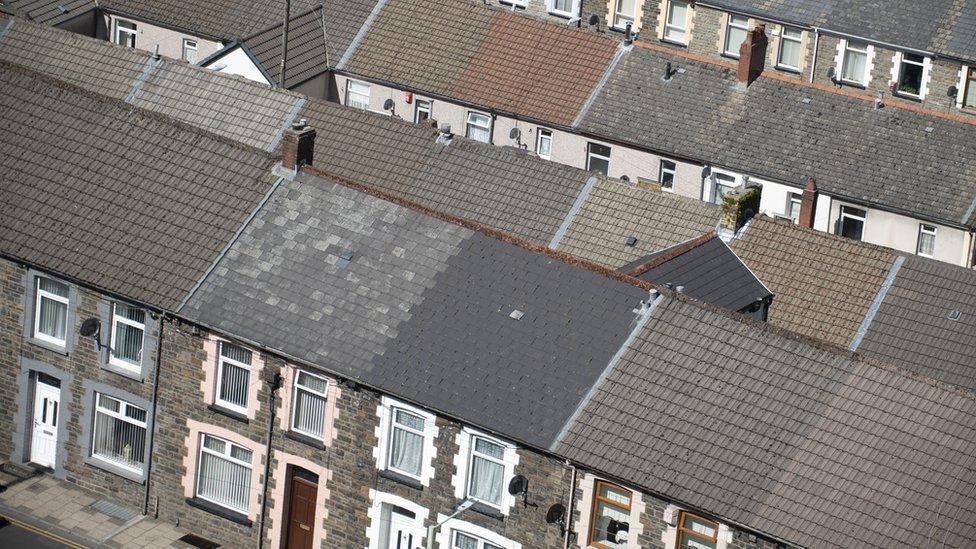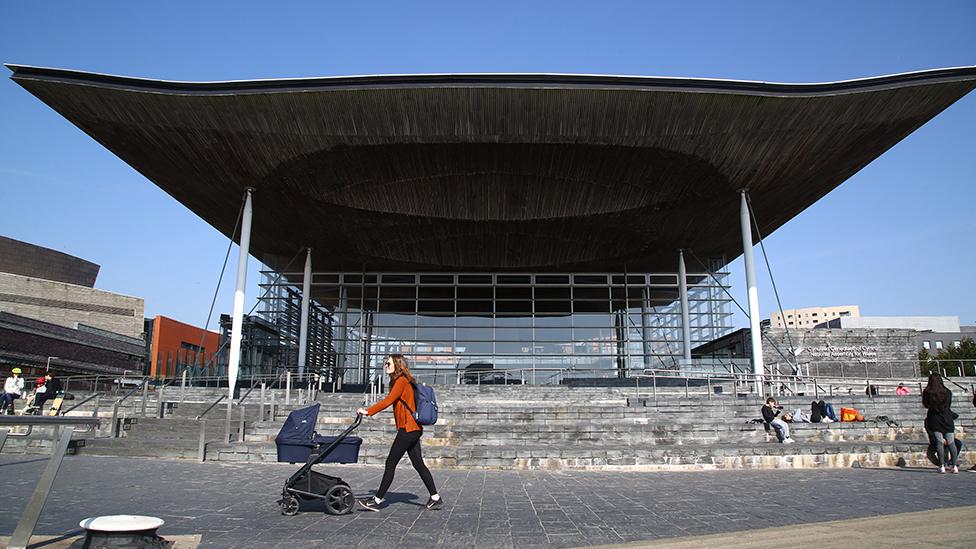Senedd 2021: Council tax the biggest debt issue, says charity
- Published

Council tax helps pay for services provided by local authorities
Tackling the impact of council tax on the poorest people should be a "high priority" for the next Welsh government, a charity has said.
Citizens Advice Cymru said council tax arrears were the "biggest debt problem" faced by those seeking help from them.
Council tax bills went up by at least twice the rate of inflation in 2021-22.
Labour, Plaid Cymru and the Liberal Democrats have all suggested reforming the tax, while the Tories said they would freeze it for two years.
Core funding from the Welsh government covers between two-thirds and three-quarters of each council's spending.
The rest comes from council tax and other income such as fees and direct charges for council-run services.

SIGN UP FOR WALES ALERTS: Get extra updates on BBC election coverage

Council tax is calculated based on the value of people's homes, although it is judged by a valuation taken in 2003.
Citizens Advice Cymru estimated that 64,000 households have fallen behind on council tax payments since the start of the pandemic, while one in seven people had "struggled to keep up with their council tax bills" beforehand.
In April 2020, a report by the Institute of Fiscal Studies (IFS), funded by the Welsh government, concluded council tax was "out of date, regressive and distortionary" and needed "to be revalued and reformed".
The report found revaluation of properties alone "would have little effect on the average tax bills" but "reform could make council tax much more progressive".
A regressive tax places a larger burden on lower-income earners, while a progressive tax is based on an individual's ability to pay.

All councils in Wales have seen council tax increases above inflation
The highest annual charge for Band D properties this year is in Blaenau Gwent (£1,768). The lowest is Pembrokeshire (£1,190).
But all local authorities saw an increase far above inflation, which was 0.9% in the year to January.
They ranged from 2.65% in Rhondda Cynon Taf to 6.95% in Wrexham - although Wrexham still charges less than most authorities in Wales - while Rhondda Cynon Taf has one of the highest charges.
The IFS report in April 2020 said "making council tax proportional to up-to-date values would lead to average bills falling by more than £160 in Merthyr Tydfil, Neath Port Talbot and Blaenau Gwent".
"Conversely, they would rise in areas with high average property values such as Cardiff, the Vale of Glamorgan and Monmouthshire."
Citizens Advice Cymru said debt arising from council tax was "more than other utility bills, more so than credit card bills or store card bills".
The charity's head of policy and campaigns, Rhiannon Evans, said it was the number one issue for clients who come to the charity for assistance and "needs to be a real priority for the next Welsh government to change that".
She also called for the way tax debts were collected to be reformed.
"Things like the use of bailiffs can cause unnecessary distress and make the situation worse for people already in vulnerable circumstances - and the use of bailiffs also often means that additional fees and charges are added to the original debt."
The charity wants to see the voluntary council tax protocol, external put on a "statutory footing" so that councils are required to take all necessary steps before sending out bailiffs, and stop the practice of making people liable for the full annual bill if they miss one payment.

WALES ELECTION: THE BASICS
What's happening? On 6 May, people will vote to elect 60 Members of the Senedd (MSs). The party that can command the support of a majority of MSs will form the Welsh government. Find out more here.
What powers does the Senedd have? MSs pass laws on aspects of life in Wales such as health, education and transport - and have some tax powers.

Economist Dr Rhys ap Gwilym, from Bangor University, said people in the poorest households paid a "much higher proportion on the value of the wealth in tax than those in more affluent houses".
But, he said, "politicians of all colours are worried about reform of local taxes" due to past protests over the UK government poll tax system in the late 1980s and early 1990s, which it later abandoned and replaced with council tax in 1993.
What do the parties say?
Welsh Labour said it would "commit to reforming council tax to ensure a fairer system for all".
Plaid Cymru wants to see an eventual "wholesale reform of the council tax system," but in the meantime they propose property "revaluation, increase the number of bands at the higher end of house valuations, and ensure that that council tax is more proportional to the value of properties".
The Welsh Conservatives said they would ensure "a council tax freeze for the first two years of the next Senedd term, with the ambition of freezing for the full term" and implement "council tax referendums for local people to have a say on excessive council tax rises above 5%".
The Welsh Liberal Democrats said they would "investigate changes to the funding of local government, including replacing council tax".

POLICY GUIDE: Who should I vote for?
FIRST TIME: Will 16-year-olds vote?

- Published22 April 2021

- Published6 May 2021

